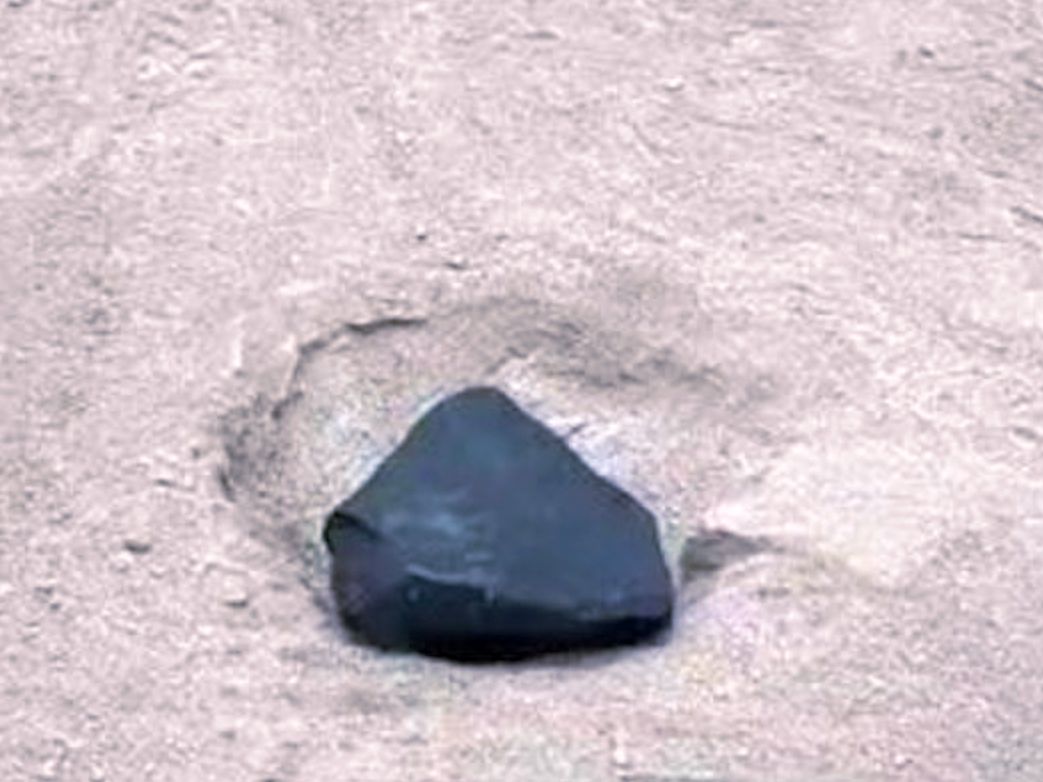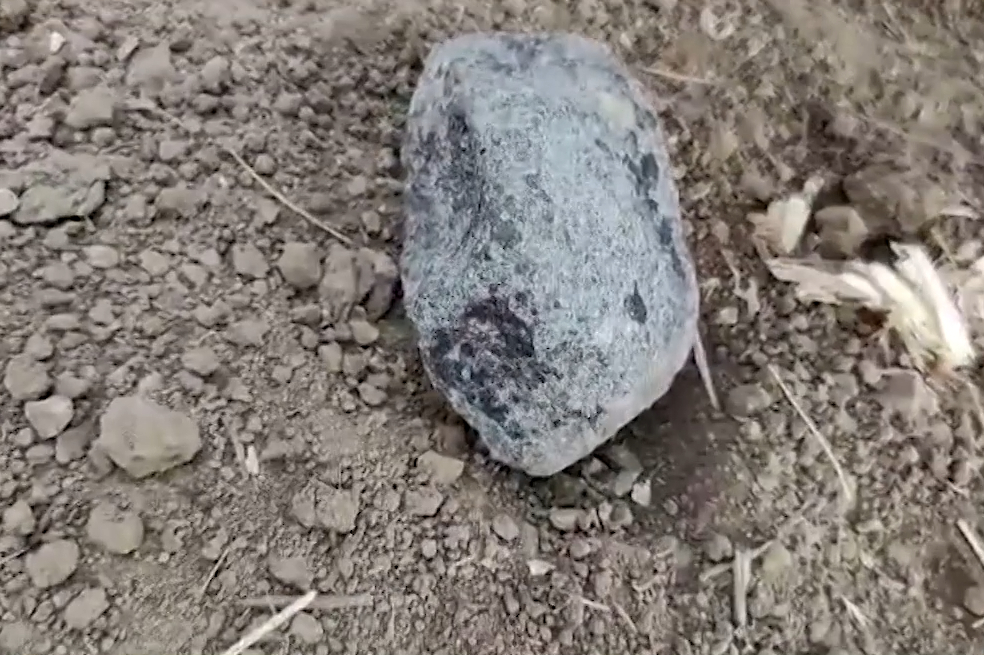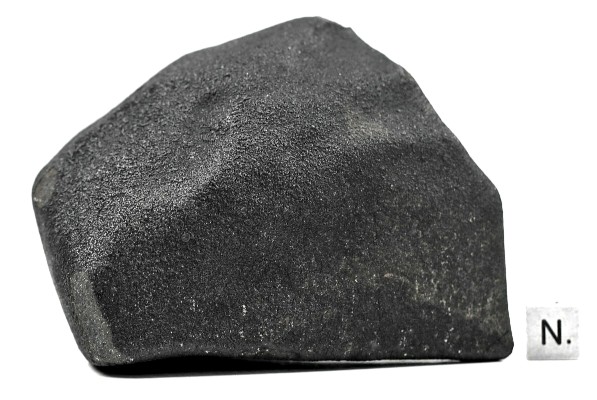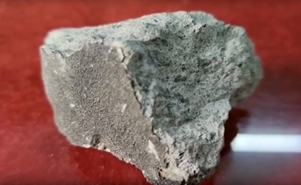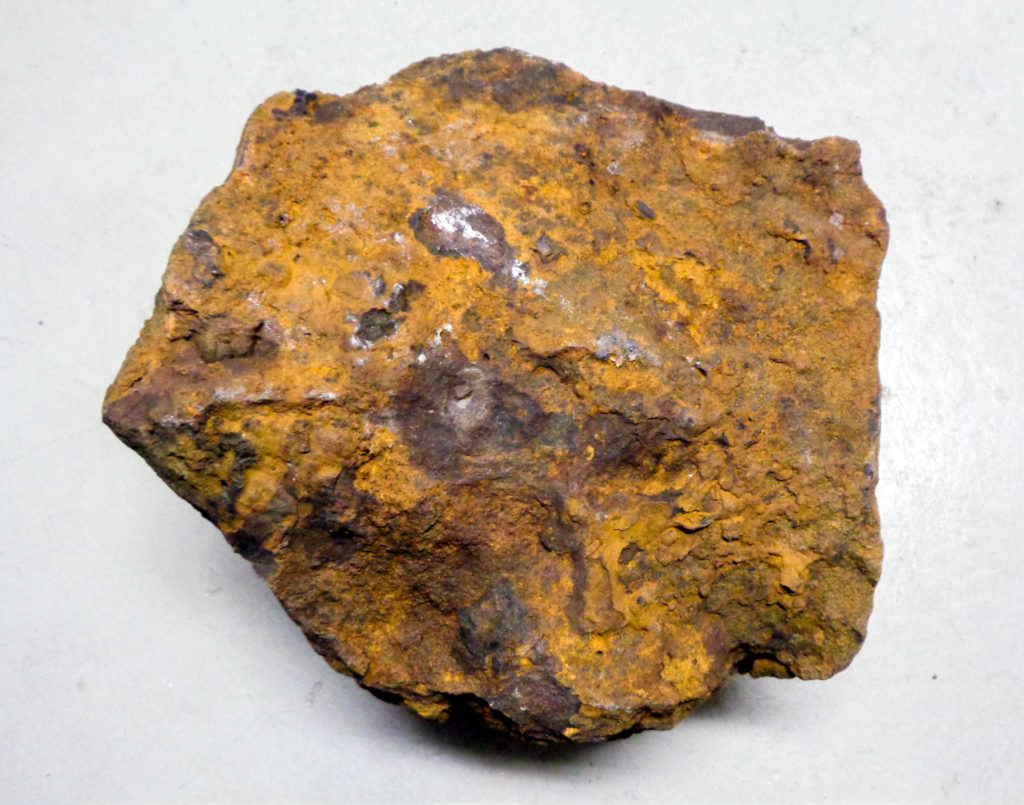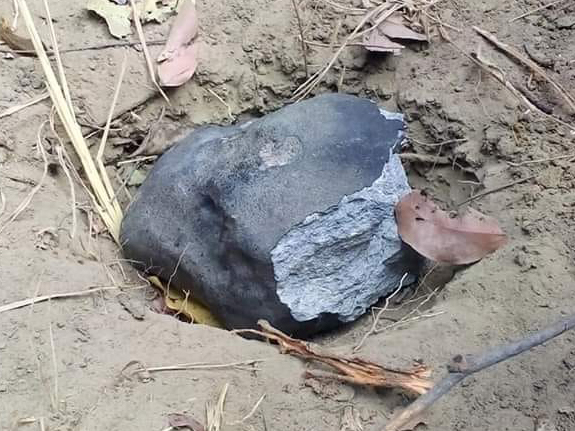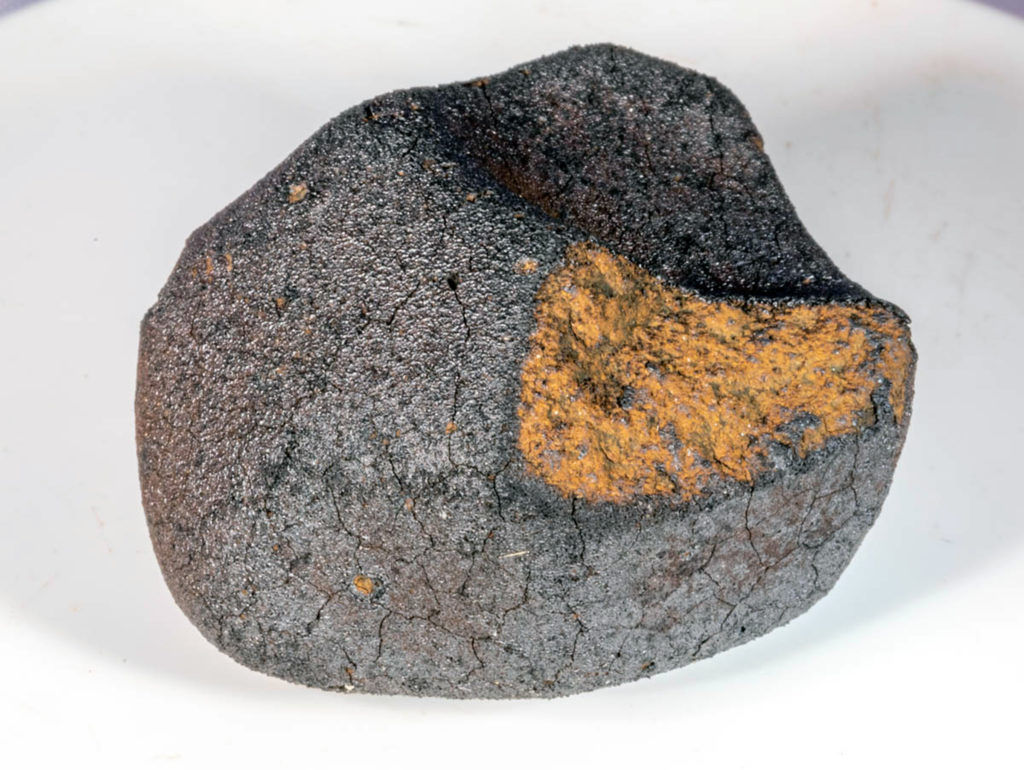Petrogenesis of lunar impact melt rock meteorite Oued Awlitis 001
Axel Wittmann, Randy L. Korotev, Bradley L. Jolliff, Kunihiko Nishiizumi, A. J. Timothy Jull, Marc W. Caffee, Michael Zanetti, Anthony J. Irving
Meteoritics & Planetary Science
doi:10.1111/maps.13218
“Oued Awlitis 001 is a highly feldspathic, moderately equilibrated, clast‐rich, poikilitic impact melt rock lunar meteorite that was recovered in 2014. Its poikilitic texture formed due to moderately slow cooling, which judging from textures of rocks in melt sheets of terrestrial impact structures, is observed in impact melt volumes at least 100 m thick. Such coherent impact melt volumes occur in lunar craters larger than ~50 km in diameter. The composition of Oued Awlitis 001 points toward a crustal origin distant from incompatible‐element‐rich regions. Comparison of the bulk composition of Oued Awlitis 001 with Lunar Prospector 5° γ‐ray spectrometer data indicates a limited region of matches on the lunar farside. After its initial formation in an impact crater larger than ~50 km in diameter, Oued Awlitis 001 was excavated from a depth greater than ~50 m. The cosmogenic nuclide inventory of Oued Awlitis 001 records ejection from the Moon 0.3 Ma ago from a depth of at least 4 m and little mass loss due to ablation during its passage through Earth’s atmosphere. The terrestrial residence time must have been very short, probably less than a few hundred years; its exact determination was precluded by a high concentration of solar cosmic ray‐produced 14C. If the impact that excavated Oued Awlitis 001 also launched it, this event likely produced an impact crater >10 km in diameter. Using petrologic constraints and Lunar Reconnaissance Orbiter Camera and Diviner data, we test Giordano Bruno and Pierazzo as possible launch craters for Oued Awlitis 001. “

